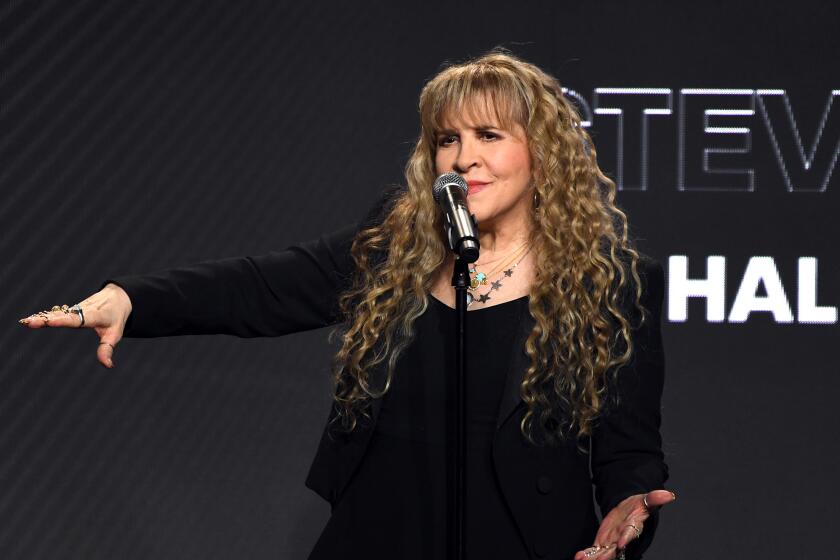Foreign TV Producers Find U.S. a Hard Sell : Broadcasting: There are 97 overseas companies at the annual assembly of program executives, but few stations are buying their shows.
- Share via
NEW ORLEANS — The floor at the National Assn. of Television Program Executives’ convention here this week was filled with the usual participants pitching new talk shows, game shows and reruns to local TV stations.
There are 1,100 commercial TV stations in the United States, and executives from most of them have come to New Orleans searching for next year’s big hit. A hit is what every broadcaster longs for, especially since every one of this year’s new game shows have failed, and for this they mostly look to the big Hollywood studios and a handful of smaller independent distributors.
Yet this year, there are 97 foreign TV production companies at the NATPE convention, twice as many as last year. Hollywood producers have long supplied foreign broadcasters with programming, but there has never been much U.S. appetite for shows made overseas.
Convention organizers have proudly pointed to the influx of foreign companies as a sign of a new interest in shows produced outside the Hollywood mainstream, especially as costs for programming soar.
But foreign TV syndicators who came to NATPE hoping to sell their shows to American broadcasters have been roundly disappointed, and there appears to be no thawing in stations’ chilly reception to foreign-made programs.
The foreign companies’ convention stalls remained empty as TV station executives crowded into the mansion-size booths of the major Hollywood studios, enticed not only by a peek at next year’s new syndicated shows but also by the sumptuous buffet spreads and open bars.
In one corner of the football-length convention floor stood Nick Austin, chairman of the Landscape Channel, a London-based cable programmer that is trying to sell its programming to local TV stations and cable systems. The Landscape Channel doesn’t show any comedy or dramas, just pastoral shots of rolling country scenery with a classical musical track in the background.
Austin said that his programming is in 30 million European homes, but there hasn’t been much interest from American broadcasters. “We’ve come here to make contacts and show people we’re in business,” he explains, noting that “People consider our programs to be very low-stress.”
Similarly unable to woo many broadcasters into his booth was Frank van den Engel, general manager of Strengholt Televidio International, a Dutch distributor of feature films to TV stations. He was one of seven Dutch companies trying to sell programming at NATPE.
“This is our first try, but it’s very difficult. Dutch films are all about human relations, and the American stations all want ‘Rambo.’ American programs travel all over Europe, but it doesn’t work the other way around.”
Wolfgang Riehl, sales chief of Studio Hamburg, a German TV production company, was trying to drum up interest in his documentaries, German cooking programs and dramas made for ARD, Germany’s state-run TV network.
But, he lamented, “even when we shoot our shows in English, it’s a problem because of the accent.”
In Europe, TV audiences have long been accustomed to watching shows produced in another country but dubbed or subtitled into their own language. With the exception of an occasional film on cable, American TV viewers are notoriously parochial about wanting American accents, American characters, even American locations in their shows.
Some foreign syndicators say the only hope is making new programs by co-producing with American partners.
“We can do joint ventures with American TV stations and help with the financing problems,” said Jacques Peskine, president of the French Assn. of TV Producers. “But we have to learn the tricks and rules of how it’s done here.”
More to Read
The biggest entertainment stories
Get our big stories about Hollywood, film, television, music, arts, culture and more right in your inbox as soon as they publish.
You may occasionally receive promotional content from the Los Angeles Times.








